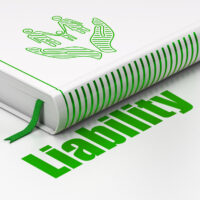Musician Sues Prep School After Stage Prop Falls

A Florida musician is suing Shorecrest Preparatory School after he says that a large stage prop fell on top of him. The plaintiff is a bassist and audio engineer who works at St. Petersburg College as adjunct faculty where he teaches music classes.
The incident occurred roughly three years ago at the exclusive private school where the plaintiff was practicing. The plaintiff claims that while he was practicing, a large stage prop fell from above on top of him. He suffered several injuries, according to the complaint, including abrasions and a nervous system injury. The plaintiff said that he received medical treatment and nursing treatment for the accident and his injuries have compromised his ability to pursue “normal pursuits of life.” He is seeking damages in excess of $15,000.
The complaint names the school as the sole defendant and says that the school is exclusively at fault for the accident.
This is a Premises Liability Claim
Even though it isn’t a slip and fall accident, the lawsuit is filed under the theory of premises liability. In order to successfully win a lawsuit such as this, the plaintiff must be able to show that the defendant had actual or constructive knowledge of the dangerous condition and neglected to act.
Key to pursuing a lawsuit on this theory of personal injury is showing that the school did, in fact, know that there was some problem with the stage prop prior to the injury. Interestingly, the plaintiff could have pursued a lawsuit on the basis that the stage prop was negligently set up, but elected not to.
Premises liability claims most often are decided on the basis of whether or not the event was foreseeable. The complaint appears to claim that the school had actual, as opposed to constructive, knowledge of the dangerous prop. This too is a more difficult case to make.
Constructive vs. Actual Knowledge in Premises Liability
Actual knowledge is exactly what it sounds like. Essentially, a plaintiff claims that a defendant had knowledge of a dangerous condition and elected not to remedy it. Constructive knowledge assumes that the defendant should have known or should have checked to ensure that the premises did not have a dangerous condition. Proving actual knowledge is more difficult since you have to prove what the defendant did or did not know. Constructive knowledge is a weaker claim, but easier to prove.
In this case, the defendant is alleging that the school had actual knowledge of the dangerous condition and left it unremedied. This, perhaps, could be a sign that the plaintiff is seeking punitive damages against the school by claiming gross negligence as opposed to ordinary negligence.
Talk to a Miami Personal Injury Lawyer Today
If you’ve been injured by a dangerous condition that’s been left unremedied in a place you’ve been invited on to, you’re entitled to recover damages for your injuries. The Miami personal injury attorneys at the office of Alan Goldfarb, P.A. can file a claim against the negligent party and get you the injury relief you deserve.
Resource:
floridapolitics.com/archives/309847-local-musician-sues-exclusive-shorecrest-prep-for-injuries-after-on-stage-accident
https://www.goldfarbpa.com/woman-wins-430000-in-trader-joes-slip-and-fall/
